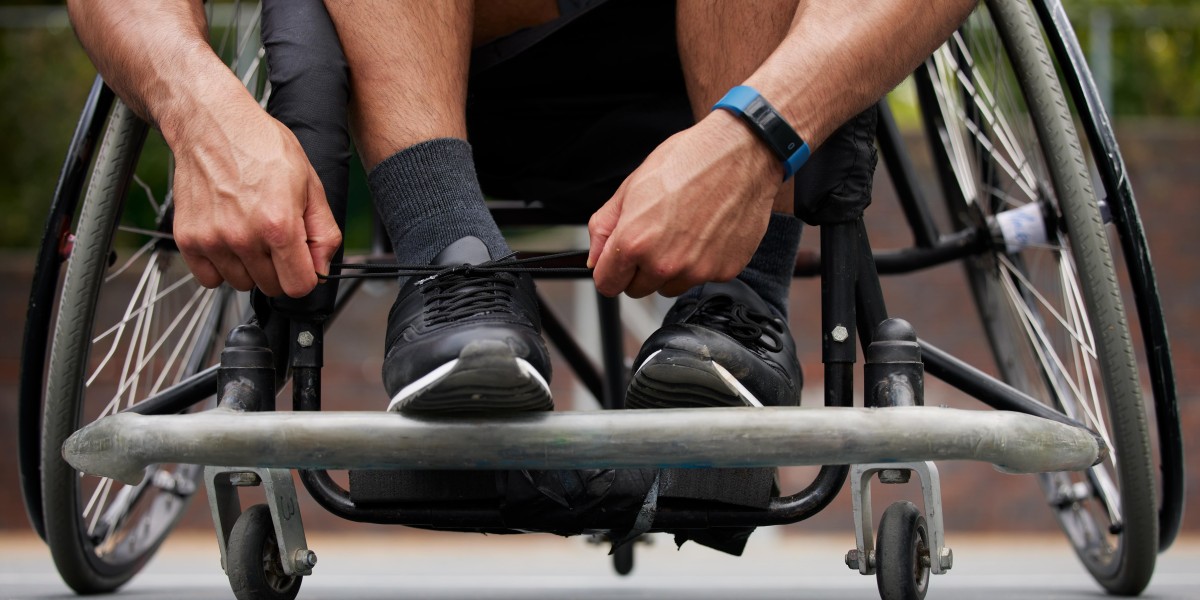Mobility Scooters in the UK: A Comprehensive Guide
In the United Kingdom, mobility scooters are becoming an increasingly popular ways of transportation for individuals with mobility issues, offering them with the flexibility to browse their neighborhoods independently. These motorized lorries are designed to assist those who have difficulty strolling or utilizing a manual wheelchair, using a practical and comfy solution for daily travel. This article looks into the world of mobility scooters in the UK, exploring their advantages, legal requirements, and how to choose the best one.
Introduction to Mobility Scooters
A mobility scooter is a battery-powered car that typically has 3 or four wheels, a seat for the motorist, and handlebars for guiding. They are designed to be simple to utilize and keep, making them perfect for older grownups and people with impairments who desire to preserve their independence. Mobility scooters can be found in various sizes and models, each dealing with different needs and preferences.
Advantages of Mobility Scooters
- Increased Independence: Mobility scooters permit users to travel longer ranges without the physical stress connected with strolling or utilizing a manual wheelchair. This self-reliance can significantly boost their lifestyle.
- Affordable: Compared to other motorized cars, mobility scooters are fairly budget friendly. They likewise require very little maintenance, which can conserve users a great deal of money in the long run.
- Relieve of Use: Most mobility scooters are designed to be user-friendly, with intuitive controls and comfy seating. They are typically lightweight and can be easily disassembled for transport.
- Improved Social Interaction: By making it possible for users to venture out more often, mobility scooters can help lower feelings of seclusion and isolation, promoting social connections and community involvement.
- Boosted Safety: Mobility scooters are equipped with functions such as headlights, brake lights, and horns, making them much safer for usage on roads and in public spaces.
Kinds Of Mobility Scooters
When picking a mobility scooter, it's important to think about the type that best matches your requirements. Here are the primary types offered in the UK:
Class 2 Mobility Scooters:
- Speed: Limited to 4 mph (6.4 km/h)
- Usage: Suitable for pavements and pedestrian locations
- Features: Compact and lightweight, foldable for easy transportation
Class 3 Mobility Scooters:
- Speed: Can reach up to 8 miles per hour (12.9 km/h)
- Usage: Suitable for both pavements and roads, offered they are registered and insured
- Functions: Sturdier construct, typically with more sophisticated features like suspension and bigger batteries
Heavy Duty Mobility Scooters:
- Capacity: Designed to support users weighing approximately 400 pounds (181 kg)
- Usage: Ideal for those who require a robust and long lasting scooter
- Features: Reinforced frame, larger seat, and enhanced stability
Off-Road Mobility Scooters:
- Terrain: Built to deal with rough and irregular surfaces
- Use: Suitable for users who take pleasure in outside activities like treking or fishing
- Features: All-terrain tires, high ground clearance, and powerful motors
Legal Requirements for Mobility Scooters in the UK
Using a mobility scooter in the UK includes particular legal responsibilities. Here are the crucial points to consider:
- Registration and Insurance:
- Class 2 Scooters: No registration or insurance coverage needed
- Class 3 Scooters: Must be signed up with the DVLA, insured, and display a legitimate MOT certificate if used on roadways
- Driver Requirements:
- Age: Users need to be at least 14 years of ages
- Health: No specific health conditions are required, but users must have the ability to manage the scooter securely
- Speed Limits:
- Class 2 Scooters: 4 miles per hour (6.4 km/h) on pavements
- Class 3 Scooters: 8 miles per hour (12.9 km/h) on roadways, 4 mph on pavements
- Security Equipment:
- Lights: All scooters utilized on roadways must have front and rear lights, indications, and a horn
- Reflectors: Required for use on roadways, especially throughout low presence conditions
- Tax and Parking:
- Tax: Class 3 scooters are exempt from automobile tax
- Parking: Users can park in designated disabled parking spaces with a legitimate Blue Badge
How to Choose the Right Mobility Scooter
Picking the best mobility scooter includes thinking about several factors:
Mobility Needs:
- Range: How far do you require to travel?
- Surface: Will you be utilizing the scooter on pavements, roadways, or off-road?
- Weight Capacity: What is the optimum weight the scooter requires to support?
Spending plan:
- Initial Cost: Mobility scooters can vary from a few hundred to several thousand pounds
- Continuous Costs: Consider the expense of batteries, upkeep, and insurance
Functions:
- Comfort: Look for a scooter with a comfortable seat and adjustable controls
- Storage: Some scooters offer additional storage for shopping bags or individual items
- Portability: If you require to transfer the scooter, select a design that is lightweight and foldable
Reputation and Support:
- Brand: Research trusted brand names understood for their quality and reliability
- Guarantee: Check the service warranty period and what it covers
- Client Support: Ensure the producer or merchant offers excellent customer support and service
FAQs About Mobility Scooters in the UK
Do I require a license to drive a mobility scooter?
- No, you do not require a driving license to operate a mobility scooter in the UK. Nevertheless, Class 3 scooters need to be signed up with the DVLA and guaranteed if utilized on roads.
Can I utilize a Mobility Scooter Uk scooter on the pavement?
- Yes, both Class 2 and Class 3 scooters are permitted on pavements, but Class 3 scooters are restricted to 4 mph.
Are there any constraints on where I can utilize a mobility scooter?
- Class 2 scooters are limited to pavements and pedestrian areas. Class 3 scooters can be utilized on roadways, however they must meet particular legal requirements.
How do I keep my mobility scooter?
- Regular maintenance includes checking battery levels, tire pressure, and brake functionality. It's likewise important to clean up the scooter regularly and keep it in a dry location.
Can I get a mobility scooter through the NHS?
- The NHS offers mobility scooters through the Disabled Living Allowance (DLA) or Personal Independence Payment (PIP). You can likewise purchase or rent a scooter from a private retailer.
Is a mobility scooter tax-deductible?

- In many cases, the expense of a mobility scooter can be declared as a medical cost. Seek advice from a financial consultant for particular guidance.
Tips for Using a Mobility Scooter Safely
- Wear Appropriate Clothing:
- Wear comfortable and weather-appropriate clothing. Think about wearing a high-visibility coat when utilizing the scooter on roadways.
- Maintain the Scooter:
- Regularly examine the battery, tires, and brakes to ensure the scooter is in excellent working condition.
- Follow Traffic Rules:
- Obey traffic signs and signals, and use designated pedestrian and cycle courses when possible.
- Use Safety Equipment:
- Always utilize the headlights, brake lights, and horn, specifically throughout low exposure conditions.
- Be Mindful of Others:
- Be polite to pedestrians and other road users. Decrease when approaching congested areas.
Mobility scooters are an important tool for people in the UK who face mobility challenges. They provide a variety of benefits, from increased independence to improved safety, making them a popular option for older adults and individuals with disabilities. By comprehending the various kinds of scooters, legal requirements, and how to select the ideal one, users can delight in the freedom and benefit these vehicles supply. Whether for daily errands or recreation, a mobility scooter can significantly enhance the quality of life for lots of people.
Additional Resources
- DVLA Website: For details on signing up and guaranteeing a Class 3 mobility scooter
- Age UK: Offers suggestions and assistance for older grownups considering a mobility scooter
- Disability Rights UK: Provides guidance on accessing mobility scooters through financial assistance programs
By making the effort to research study and pick the best mobility scooter, users can delight in higher self-reliance and a more active way of life.








